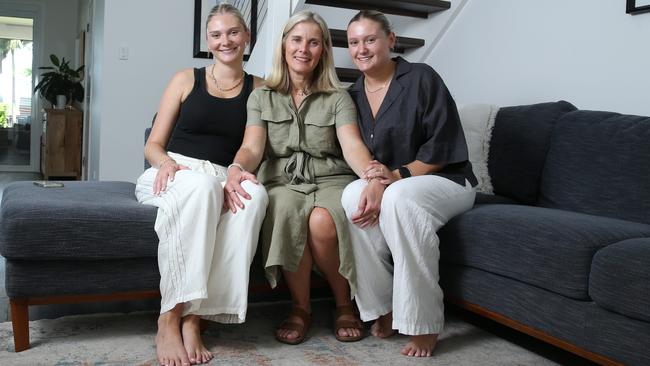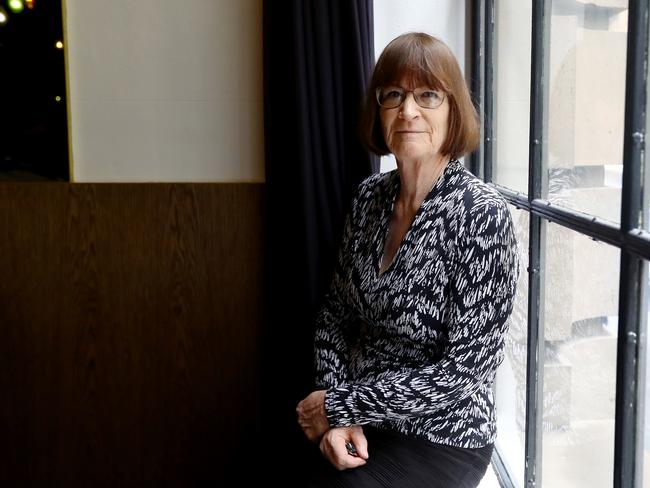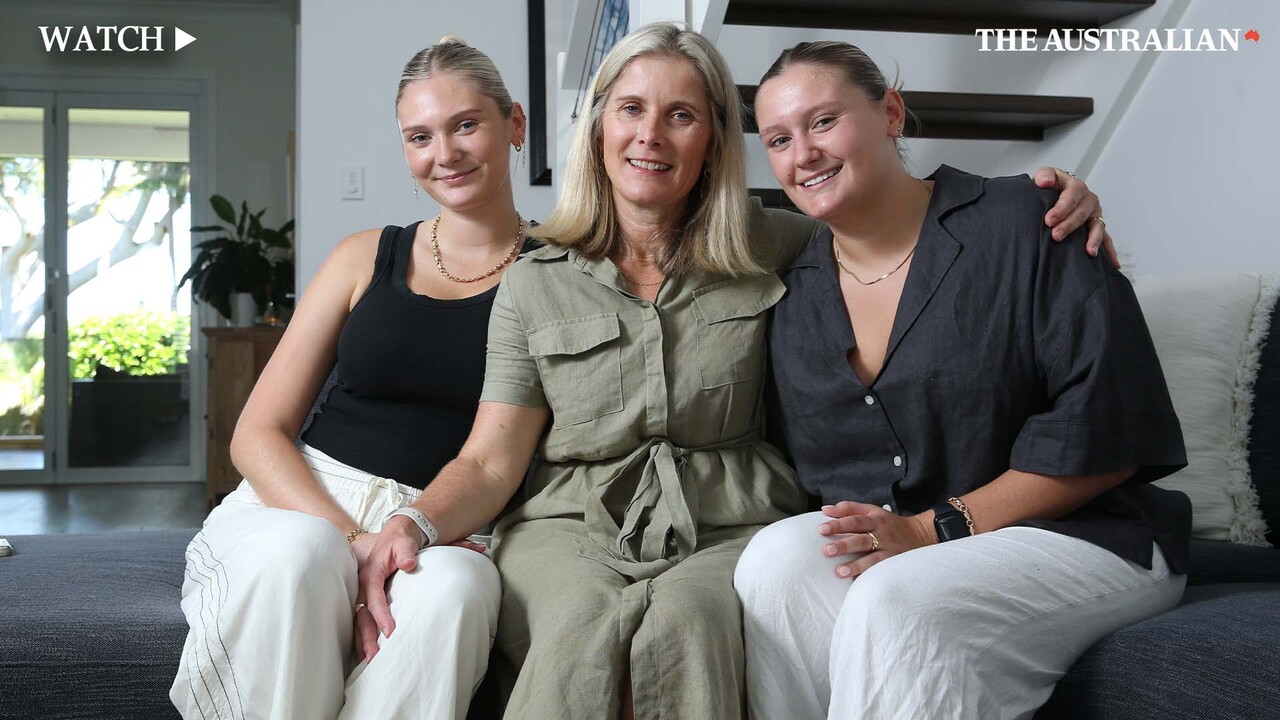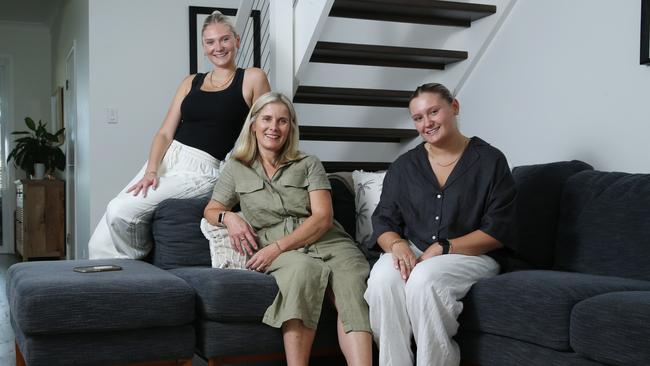20-somethings still living at home? Here are some of the rules to navigate
The numbers don’t lie when it comes to children living at home well into their 20s. But how should we navigate a household of parents and children when everyone’s an adult?

It’s 1am and despite your best efforts to get a good night’s sleep, you need to drag yourself into the bathroom. But wait a minute, is that your daughter’s new boyfriend already hogging the upstairs loo?
Welcome to intergenerational harmony, 2025-style. The 20-something kids are not only still at home, their friends and partners are there, too – on the couch, just when you want to settle in for a couple of episodes of Slow Horses.
Negotiating the fallout from shockingly high house prices, exorbitant rents, five-year double-degrees and crippling HECS debts means more and more families are coping with offspring at home way into their adult years.
And parents and “kids” are having to create new rules and habits for how to deal with their roles when the power dynamic has shifted just a little off kilter.
Here is what 20-somethings still living with their parents should know:
● Your mum or dad don’t want to be cleaning the kitchen after you’ve “cleaned”.
● Your room is not yours to pile up used tea cups and crusty breakfast bowls and leave as untidy as you like, unless you are paying your per square metre share of the mortgage.
● Full-time working parents almost can be brought to tears of joy by this text: “Don’t worry, dinner sorted.”
● Bunging your clothes in the hamper is not doing the laundry. Buying milk at the corner store isn’t doing the grocery shopping.
● The board you pay (if any) is not covering your costs.
● And your parents aren’t too happy about running into random “sleepovers” in the bathroom in the middle of the night.
But don’t be too smug, parents. Here are a few hard truths for you.
Much as they may like you, your 20-something kids are unlikely to be living with you still by choice. In most cases if they could afford the housing they’d be out the door in a flash.
But more are in full-time study or working part time than a generation ago, making the big move so much harder. HECS debts weigh heavily.
And speaking of a generation ago, you may want to reflect on what contributions you made to your household in the years before you made your first move out of the family home. Think hard. Were you so perfect?
There are some families where the parents can’t think of anything better than having their adult children live with them for as long as they need to. There are others where the parents are dreaming of an empty-nester life.
With good grace, consideration, communication and forbearance on both sides, a family of adult parents and children can live harmoniously. We’ll explore some of the ground rules to navigate:
Who is still living at home
But first, who are we talking about?
The latest available data from the Household, Income and Labor Dynamics in Australia Survey shows the average age men leave the family home is about 24. For women it is a tick over 23.
Just more than half (54 per cent) of all men aged 18 to 29 are still living at home with their parents, the 2021 HILDA data shows, and 47 per cent of women.
There has been a generational shift among mid to late 20-somethings.
In 2001, 21.3 per cent of men aged 26 to 29 lived in the family home, but two decades later it was 31.2 per cent. For women the rise was even steeper, from 15.9 per cent of female 26 to 29-year-olds living in the family home in 2001 to 27.5 per cent in 2021.
Australia is by no means an outlier in terms of the age at which young people tend to leave home. In the US and Britain the median age of moving out is around 25, but in some parts of Europe it is considerably older.
According to 2023 data from Eurostat, in Italy, Spain and Greece the average age of moving out is 30 or older. Greek men don’t move out of their family home on average until aged 32.3.
By contrast, Sweden (19 years), Finland (21.2 years), Denmark (21.3 years) and Estonia (22.7 years) recorded the lowest average ages, all under 23 years old.
France and Germany sit around Australia’s numbers, at just under 24.
What’s behind the failure to launch?
Like life, it’s complex and intertwined. More are staying in education longer. In a fractured jobs market there is more part-time work. Pairing off and starting a family are happening later. This is why the proportion of women living with their parents is rising faster than men.
But easily the most dominant reason is the cost of living, particularly housing costs. It is taking longer for young people to be through their education or training and earning enough to be able to take on housing costs and have something left to live on.
This isn’t even about getting into the property market, which feels like another planet for young Australians. It’s about finding an affordable rental.
Anecdotes abound. Two newly qualified female doctors, drawing decent pay packets, struggling for months to secure a two-bedroom property in a big capital city because they don’t have a rental history. Queues around the block for rentals, with bidding wars on the rent.
University of Melbourne sociologist Lyn Craig says the increasing proportion of young Australians continuing into tertiary education, combined with housing cost rises, is behind more staying at home longer.

“It is financially difficult to leave home while you’re still studying,” Craig says. “And studying longer means entering the workforce later.
“Even then getting into the workforce at a wage needed to get housing can take some time, further delaying moving out.”
The growing affluence of the baby boomer generation is a factor, too, leaving them generally more open to their kids staying at home longer.
Alongside that, increasingly relaxed views about the appropriateness of having sexual partners stay over in the family home is another reason the incentive to move out has dissipated in recent generations.
Parenting expert Justin Coulson says there are consequences of adult children becoming “adultescents”, both positive and negative.
“Parents are more emotionally invested in their children than they were five to seven decades ago, and if living under the one roof is done respectfully and with consideration the longer-lasting quality of connection and closeness is delightful,” Coulson says.
“But in not moving out these children don’t get the benefits of independence, which can build resilience. This can interfere with their future relationships.
“On the other hand, some parents may feel somewhat resentful. They feel that at this stage of their lives they should be free to do what they want. They want space. They may be thinking: ‘I haven’t walked naked to the kitchen for more than 20 years, and I should be able to if I want.’ ”
Craig says the new order is creating a vicious cycle of lower fertility.
“Families are already shrinking, with our falling fertility tied to the delay in having first children,” Craig says. “Not moving out is tied up in this, with longer periods of education delaying entry into the workforce and housing costs leading to women leaving it later to cohabit with a partner and consider starting a family.
“If women aren’t moving out of the family home until their mid to late 20s, and around 37 is the age at which fertility starts to become an issue, the window available to have the number of children you may want becomes shorter.”
Meet the Nables
The Nable family from Sydney’s northern beaches is your fairly typical “young adults in the home” family.
Candice and Damien Nable have three adult children: Henry, 25; Lily, 23; and Heidi, 21.
Candice, 52, is in healthcare sales and Damien, 54, is a telecommunications technician.
Henry, a wharf worker, has moved out with his girlfriend and lives down the road. Lily, who works in tourism sales, and Heidi, a part-time student and part-time childcare educator, are still at home.

“We really enjoy their company and we’re very happy to have them at home,” Candice says. “And I know they like it here, too, though they’re itching to get out and have their own place.
“I’m really happy for Lily to stay while she and her boyfriend are saving for a deposit. And Heidi is a student, so it’s hard for her to be thinking about moving out given the cost.
“As long as they’re both contributing around the house, it’s fine by us.”
Both young women say the cost of housing is the main reason they are still at home.
“My friends joke about how we will all be living at home forever,” Heidi says. “Everyone is on such different financial levels. I have friends being set up by parents buying them properties. I have full-time students somehow managing out of home.
“I think at my age priorities differ. Some want to travel and some want to save for a home. For me I want to buy, not rent, but my pay in childcare is really low.
“Ideally I’d move out with my boyfriend, but I have four more years of study and I want to be set up in my career before I move out, so I could potentially be home for that time.

“I think my parents understand. Part of them may be wishing I’d go out and buy something earlier and just get going, but they also know the cost of living and the cost of housing is so different from when they were becoming adults.”
Lily says she and her partner also are planning to move out but probably need another 18 months of saving before they are ready.
“I’d like to buy ideally, possibly an investment property somewhere outside Sydney, but I wouldn’t rule out starting out renting,” Lily says.
Lay down the rules
On the basis that more adult children are going to be living at home longer, what rules should be in place to offer the best chance at a harmonious coexistence? We’ll run through them with the help of the Nables.
Maximum age
The old rhyme of “24 and out the door” seems to be hitting the demographic mark in Australia at the moment. But how old is too old to still be living at home?
While it’s hard to nominate an age, especially with cultural factors at play, as can be seen in the European data above, families generally will have a feeling when it’s time for someone to go. Sometimes it may require a little nudge.
“My experience tells me that on average it’s not good for kids to stay living in the family home for an extended period of time when they are adults,” Coulson says.
“Kids’ ongoing reliance on their parents don’t tend to do as well with maturity, and they may struggle to stand on their own two feet.”
Michael Ungar, founder and director of the Resilience Research Centre at Dalhousie University in Canada, agrees.
“Once it feels like a young adult is just renting a room it is likely time to leave and actually rent a room,” Ungar says. “(But) if having a youth at home feels more like a family cohesion experience and there is mutuality to the relationship, then I see no need to ask a child to leave.”
Candice Nable says her daughters have been open about their future plans.
“I think that’s the key, that we’re all on the same page. We’ve said we’re happy to help them as they look to find a path out the door and into their own place, and they’ve made their timeframes pretty clear.”
What about money?
Families have different arrangements on whether adult children contribute financially to the running of the house.
Some insist on children paying board; some don’t. Some better-off parents collect any board they are paid and put it in a special account to give to their child on leaving home as an unexpected bonus.
But finances can be a point of tension, especially if a child remains at home to “save for a deposit” but is ordering Uber Eats and taking regular holidays.
“Once a young adult is earning, I think it’s reasonable to be asking for some financial contribution in line with what they earn, if only to encourage them to start learning to budget,” Coulson says.
“But I know families who don’t roll this way. I have a friend with Greek heritage. He never wants his kids to leave and he pays for everything.”
Ungar says financial contributions should be one of the responsibilities young adults have in the family home.
“The goal should be encouraging shared responsibility and building the skills needed for future independence,” Ungar says.
Candice Nable says she asks for board from her children when they are in full-time work, not so much because it is going to make a huge difference to the household budget but as a signal that life isn’t free. At the moment Lily pays $50 a week, but Heidi doesn’t pay any.
“I guess it’s to help them understand just a little of what it will be like when they move out in terms of paying bills first, before anything else,” Candice says.
Cooking, cleaning and washing
Sharing the household duties can be one of the biggest tension points in a household.
Everyone will have their own list: dried Weet-Bix in a bowl left for someone else to scrub out; cups and plates left on the kitchen bench above the dishwasher because it is full and needs to be emptied; a parent being asked “what’s for dinner?” on arriving home from work; complaints about there being “no food in the house” rather than doing a grocery shop.
Craig has studied this element of family life for decades and says little has changed across that time.
“Compared to young adults living alone or in a share house, those living with parents are likely to do less domestic work,” Craig says.
“Parents living with young adults do more housework. This living arrangement doesn’t turn into a flatmate situation, it typically creates more housework for Mum.
“The children may do their own laundry, they may clean their own bedroom, but most don’t seem to consider it their job to share the shopping, washing or cleaning for the house.”
Coulson says when there are points of tension such as this, communication is key rather than leaving things to fester.

“Talk through it, make the obligations clear rather than stewing about what hasn’t been done that should have been,” Coulson says. “That way everyone knows what the expectations are and the consequences if those expectations aren’t met.”
The Nables seem to have their house in some sort of order when it comes to domestic duties, though Candice says a lot still falls to her, despite her full-time job.
“The two girls have spotless rooms, but their clothes do end up in the clothes basket,” Candice says. “I do their washing and complain about it.
“I’ve done the ‘I won’t do this any more’, but I’m my own worst enemy. We’ll have the family discussion where I talk about my full-time job, the travel it involves and that I can’t do everything.
“I’ll roll out the usual idle threats and then end up doing what I did before.”

The household has found a little more rhythm when it comes to cooking and cleaning, Candice says, with Lily cooking a couple of meals a week and Heidi doing more of the cleaning. Those nights are a godsend, she says.
What about sex?
Canvassing this issue among parents elicits a spectrum of views. Some families won’t allow even long-term partners of their adult children to stay the night. Most are comfortable with partners sleeping over, but the issue of one-nighters can be divisive.
Parents often say having strangers in the house overnight can be particularly uncomfortable, especially if there are younger siblings at home.
Some demand that they meet anyone who is staying over, and some say that meeting should be on an occasion before the night in question. Others say this is too harsh.
This is definitely one that should be discussed by a family to ensure expectations are set, Coulson says.
“It’s fair for a parent to say: ‘I need to know who is in my home,’ ’’ Coulson says. “But those conversations are best to happen proactively, a bit like conversations around alcohol when they are younger.”
Careful what you wish for
Perhaps you’ve had 20-somethings in your house for a while, supported them while they studied and started out in the full-time workforce, building up some money to move out into a share home or with a partner.
You haven’t mollycoddled them, so they’ve learned to cook a meal or two, know which end of the vacuum points down and what a clean kitchen bench looks like.
“Job well done,” you say.
And then it’s just the two of you.
Do you still have meals at the dining room table or do you start eating in front of White Lotus? What do you talk about? Why are things so quiet?
The plight of empty-nesters is a whole other topic, one for another day.
Candice Nable can have the last word.
“Am I looking forward to it? Yes and no,” Candice says.
“In terms of my marriage we have lots in common. We get up early and go for walks. We have lots to talk about.
“In terms of my kids, I know I’ll miss them being in the house. It will be OK if they’re somewhere down the road, like Henry is now.
“But if they move interstate, that’s different. I’d be sad, but in the end I know they have to make their own way.”





To join the conversation, please log in. Don't have an account? Register
Join the conversation, you are commenting as Logout